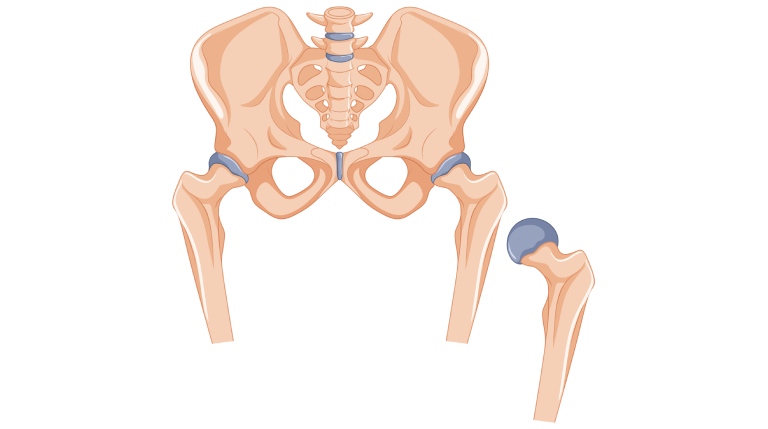Avascular necrosis (AVN), also known as osteonecrosis or aseptic necrosis, is a condition that results from the deprivation of blood supply to the bone, predominantly affecting the femoral head in the hip joint. This interruption of blood flow leads to bone cell death, causing the affected bone to collapse and ultimately result in joint destruction. In this article, we will delve into the intricate aspects of AVN of the hip, its underlying causes, symptoms, and viable treatment options.
Causes of AVN
While the specific cause of AVN often remains idiopathic, meaning unknown, there are several risk factors and underlying conditions that contribute to the development of this disorder. Some of the common causes include:
- Trauma: Fractures and dislocations can disrupt blood supply.
- Steroid Use: Prolonged use of corticosteroids.
- Excessive Alcohol Consumption Leads to fatty deposits in blood vessels.
- Medical Conditions: Sickle cell anaemia, lupus, pancreatitis, etc.
- Radiation and Chemotherapy Can weaken bone structure.
Symptoms to Look For
Early detection is crucial for effective management. The common symptoms include:
- Pain in the groin, thigh, or buttock area.
- Stiffness and limited range of motion.
- Limping or difficulty in walking.
Diagnostic Tools
- X-rays May reveal bone changes in the later stages.
- MRI: Useful in early detection.
- Bone Scan: To evaluate the blood supply to the bones.
Treatment Options
Non-Surgical Interventions
- Physical Therapy: To improve mobility and strengthen muscles.
- Medications: Anti-inflammatory drugs to control pain.
- Activity Modification: Reducing weight-bearing activities.
Surgical Interventions
- Core Decompression: To relieve pressure and stimulate new blood vessel formation.
- Bone Transplant: Grafting healthy bone to replace necrotic bone.
- Joint Replacement: In severe cases, total or partial hip replacement may be necessary.
Is AVN of the Hip Treatable?
While AVN of the hip is a severe medical condition, early intervention and a comprehensive treatment plan can significantly improve outcomes. Surgical treatment is generally more effective in the earlier stages of the disease, while joint replacement becomes inevitable in advanced cases. The overall prognosis depends on various factors such as age, stage of the disease, and the overall health of the patient.
- Yugal Karkhur on AVN of the Hip
Dr Yugal Karkhur is an esteemed orthopaedic doctor and joint specialist with over 12 years of experience and advocates for early diagnosis and an individualised treatment approach for managing AVN of the hip. With an illustrious career marked by specialised training in joint replacement surgery and numerous research publications, Dr Yugal is committed to delivering high standards of orthopaedic care, both surgical and non-surgical, for the betterment and comfort of patients.
Disclaimer: The content of this blog is intended for educational purposes and should not be considered a substitute for professional medical advice. For personalised healthcare recommendations, please consult a specialist physician. The results of treatments vary from person to person.

